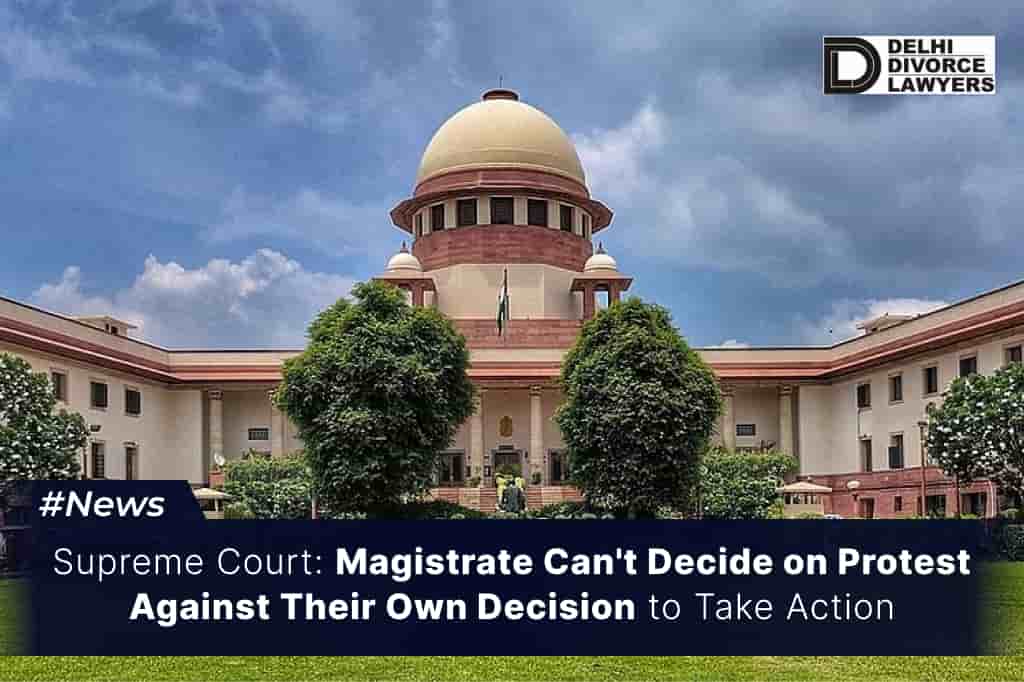In a recent judicial pronouncement, the Supreme Court authoritatively declared that a Judicial Magistrate lacks the jurisdiction to adjudicate a protest petition impugning their own cognizance order predicated on a final report. The factual matrix of this adjudication revolves around a Chief Judicial Magistrate who, subsequent to the receipt of a final report from the Crime Investigation Department, took cognizance against a solitary accused for the offense of murder.
Consequently, the aggrieved progenitor of the victim submitted a protest petition, asserting that the Magistrate had omitted to take cognizance against other implicated individuals. In response, the Chief Judicial Magistrate, on November 3rd, promulgated a subsequent order, modifying their antecedent decision to encompass the remaining accused. Unfazed, the latter cohort sought redress before the High Court under Section 482 of the Code of Criminal Procedure (CrPC). Despite the High Court’s rejection, the appellants pursued remedy through an appeal to the Supreme Court.
The High Court, in dismissing the appellants’ petition, grounded its decision on precedent, specifically the Supreme Court’s ruling in Nupur Talwar vs. CBI and Anr (2012) 2 SCC 188. The appellants posited before the Supreme Court that Nupur Talwar was distinguishable as it pertained to the Magistrate’s competence to entertain a protest petition against a closure report proffered by the investigating agency.
Concurring with the appellants, the Supreme Court expressed skepticism at the Magistrate’s contemplation of a protest petition impugning their own cognizance order. The Court, unequivocally, underscored that a Magistrate lacks inherent authority to modify a preceding order taking cognizance.
The Court observed:
“Such a course was not permissible as it was not open for the learned Chief Judicial Magistrate to entertain a protest petition against his earlier order of taking cognizance. The order dated 3rd November, 2009, amounts to modification of the earlier order dated 9th April, 2009, which was not permissible as there is no power conferred on the learned Judicial Magistrate to modify earlier order of taking cognizance.”
The court noted that Nupur Talwar addressed an entirely distinct situation. Upholding the appeal, the court nullified the subsequent order issued by the Chief Judicial Magistrate, wherein cognizance was taken against the appellants.

